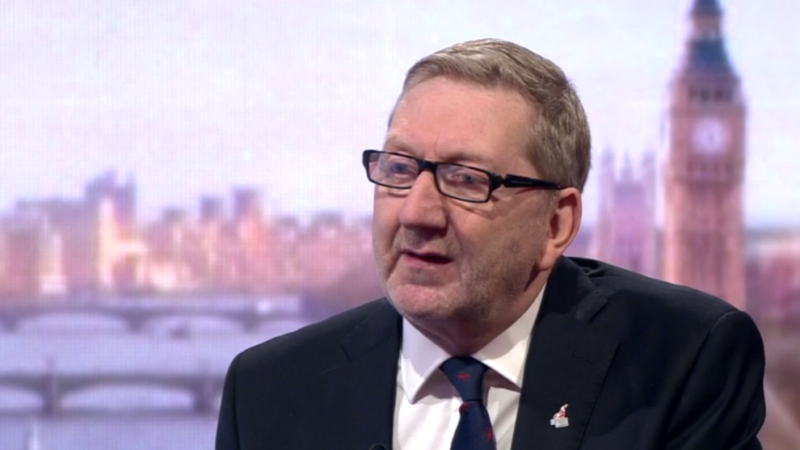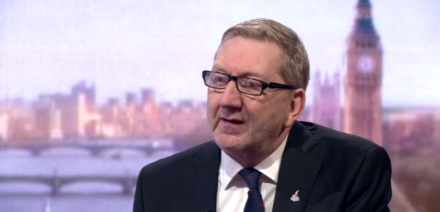

The omens ahead of tomorrow’s Budget are not good.
Last week the business select committee warned that the much-heralded industrial strategy was welcome in intent but absent of strategy.
Leading auto manufacturers all dropped very heavy hints that they were uncertain of their future in a UK that sat outside the customs union and single market.
And the Institute for Fiscal Studies reported that real wages are set to be lower in 2021 than in 2008, causing the longest squeeze in living standards ever recorded.
The numbers eking out a living on miserable zero hours contracts inched closer to the one million mark.
So when the chancellor gets to his feet tomorrow there will be a great many frayed nerves that need calming.
He could start by steadying our nervous manufacturing sector. Knowing that article 50 will be triggered is one thing. Not even getting a hint of what our trading arrangements will look like once we leave the EU is quite another.
Over the weekend the chancellor announced that he is to hoard £60bn to provide cover against the storm clouds of Brexit. For sure, that money will have to work exceedingly hard to compensate for a Conservative hard Brexit which puts at risk decent jobs, living standards and our public services.
With Ford reluctant to commit to a new engine for its Bridgend plant, and BMW toying with the idea of its electric models going into a Dutch plant, Unite members are experiencing first-hand and in real time what happens when companies feel uncertain about future investment.
The trouble is that the PM has posed a false choice of between strong borders and a strong economy with her priority being the former.
This is not just reckless, it is needless. Migration controls can be better managed without destroying the economy to crowd please the hard right.
There should be no more delay – the government must make clear tomorrow that they will be negotiating barrier-free access to our biggest markets.
This must be followed by pledges on investment and infrastructure, the essential base materials for the under-performing industrial strategy. Without these, there is little chance of this strategy or any other preparing the country to come through Brexit in a fit shape.
The Brexit shock-absorbers must be constructed now. That means incentivising industry to bring component manufacturing back to the UK. When the UK leaves the EU in 2019, we leave behind the integrated supply chain on which much of our manufacturing rests. To continue to function as a highly-developed industrial economy, able to withstand the feared tariffs and bureaucracy of life outside of the EU, we need to build in Britain in order to make in Britain.
Of course, working class communities are still fending off the blows rained down on them from Hammond’s predecessor, who managed to miss every target he set himself, growing both the debt and the deficit while hollowing out household incomes and our public services.
The fear though is that worse is to come. There is a crisis spreading in our public services that can no longer be contained or absorbed by stretched staff working with dwindling resources when government presses on with its brutal and bruising austerity.
Public investment is now lower as a share of the economy than at any time over the last parliament. Social care is on the verge of collapse, class sizes are swelling, police numbers are strained – and who could forget the picture of that little boy, camped across two chairs as he waited five hours for hospital care?
When Conservative local authorities speak out, they get ministers’ attention. But what of 250,000 people who marched through London last Saturday angered by the government’s course of continuous cuts and privatisation which is killing the NHS? They should be heard too.
Chronic under-investment sucks our communities into a downward economic spiral from which it is nigh on impossible to escape. The three million workers in insecure employment can attest to that.
So Unite members will be listening tomorrow for some sign that the chancellor accepts that austerity does not work. Almost ten years of ideological economic policy has left workers out of pocket, unlikely to get within touching distance of real earnings for the best part of another decade. UK households are already struggling under the highest level of personal debt in Europe. They need help, not wage freezes for public sector workers with tax breaks for the rich.
Labour has rightly called for funding to come forward to deal with some of the emergencies we are seeing but the news that the government is to prioritise funding for selective education, not universal provision, will demoralise teachers, pupils and parents alike, proving that May’s government is no friend to our communities.
Tomorrow’s must be a budget to prepare the country for life after Brexit, that seeks to restore living standards and reverse inequality.
Hammond is not known for the showiness of his predecessor. We have that to be grateful for at least; these are days for calm and careful thought.
But tomorrow, Unite’s members, and working class communities across the country will be listening and hoping that they are, at long last, being heard, that their futures matter too. They have suffered enough.
Len McCluskey is general secretary of Unite.




More from LabourList
‘Council Tax shouldn’t punish those who have the least or those we owe the most’
Two-thirds of Labour members say government has made too many policy U-turns, poll reveals
‘Two states, one future: five steps on the path to peace for Israelis and Palestinians’